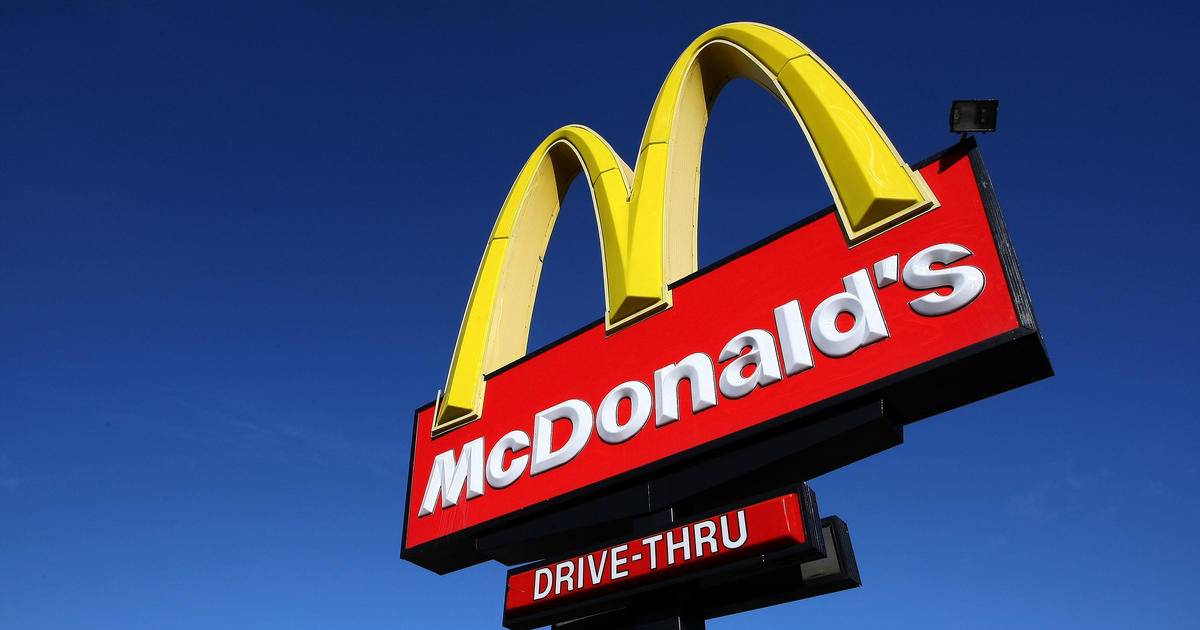
Kevin Roberts remembers when he could get a bacon cheeseburger, fries and a drink from Five Guys for $10. But that was years ago. When the Virginia high school teacher recently visited the fast-food chain, the food alone without a beverage cost double that amount.
Roberts, 38, now only gets fast food "as a rare treat," he told CBS MoneyWatch. "Nothing has made me cook at home more than fast-food prices."
Roberts is hardly alone. Many consumers are expressing frustration at the surge in fast-food prices, which are starting to scare off budget-conscious customers.
A January poll by consulting firm Revenue Management Solutions found that about 25% of people who make under $50,000 were cutting back on fast food, pointing to cost as a concern.
For some of the nation's best-known restaurant chains, losing lower-income customers means weaker sales, and potentially a dent to profits, said restaurant analyst Mark Kalinowski, president of Kalinowski Equity Research.
"When you look at McDonald's, they're not getting a majority of high-income customers — the middle- and lower-income class are the bulk of their business," he said. "They need to be cautious with their spending, and that's what you're seeing right now."
"Forget about it — I'm going home"
As fast-food prices have risen, recent earnings reports from industry leaders such as McDonald's and Taco Bell parent Yum Brands show that same-store sales have slipped over the last year.
"The whole conceit was that you were getting some OK-level of food for a low price and you could get it quick," Roberts said. "Now I can't justify the expense. If I'm paying $15 for a burger and fry and drink and it's McDonalds quality, forget about it — I'm going home."
Casual dining restaurants are also feeling the absence of low-income Americans. The CEO of Dine Brands, which owns Applebee's and IHOP, told CNBC this week that the casual restaurants are seeing a decline in low-income customers.
How much have fast-food chains raised prices?
Fast-food prices have shot up over the last decade, according to FinanceBuzz. The personal finance site found that the price of a McDonald's Quarter Pounder with Cheese meal from McDonald's more than doubled in price from $5.39 in 2014 to $11.99 this year.
Other restaurant chains also have jacked up their prices, FinanceBuzz said. Between 2014 and 2024, Popeye's, Jimmy John's and Subway hiked their food prices 86%, 62% and 39%, respectively. The price of a two-piece chicken combo at Popeyes jumped from $6.49 to $11.39 over that period, while an eight-inch club tuna from Jimmy Johns rose from $5.75 to $9.10, according to FinanceBuzz.
FinanceBuzz derived its data by selecting 10 menu items from each fast-food chain, using third-party websites like fastfoodmenuprices.com and menuwithprice.com to check the menu prices in 2014, 2019 and 2024.
To be sure, menu item prices at fast-food restaurants can vary wildly by state. While prices are set at the corporate level for some fast-food restaurants, they are determined by individual franchise owners at others.
Why are fast-food prices rising?
Restaurant chains point to rising labor costs as a key factor driving up prices. Across the U.S., 22 states raised their minimum wages in January, although the federal baseline pay remains stuck at $7.25 an hour. In California, fast-food chains with 60 or more locations nationwide are now required to pay their workers a minimum wage of $20 an hour following passage of a new law last fall.
Labor advocates dispute that rising employee wages are to blame for higher fast-food costs. A March analysis of California fast-food restaurants by the Roosevelt Institute, a liberal think tank, noted the industry's record profit margins.
"Our analysis of financial data for the past decade finds increases in fast-food industry operating profits and rising markups, suggesting that affected employers can absorb the increased operating costs associated with a higher industry minimum wage without increasing consumer prices or reducing employment," the report states.
Jack in the Box, Jimmy Johns, McDonald's, Popeyes, Subway and Yum did not respond to requests for comment from CBS MoneyWatch.
For now, companies appear to be looking toward rewards points programs, discounts and mobile apps in an effort to keep customers loyal. But McDonald's CEO Chris Kempczinski acknowledged the impact of rising prices last month in an earnings call.
"[A]cross almost all major markets, industry traffic is slowing," Chris Kempczinski told Wall Street Analysis. "McDonald's has a long history of being the go-to destination for value, and it's imperative that we continue to keep affordability at the forefront for our customers."
Americans are choking on surging fast-food prices. "I can't justify the expense," one customer says - CBS News
Read More
No comments:
Post a Comment